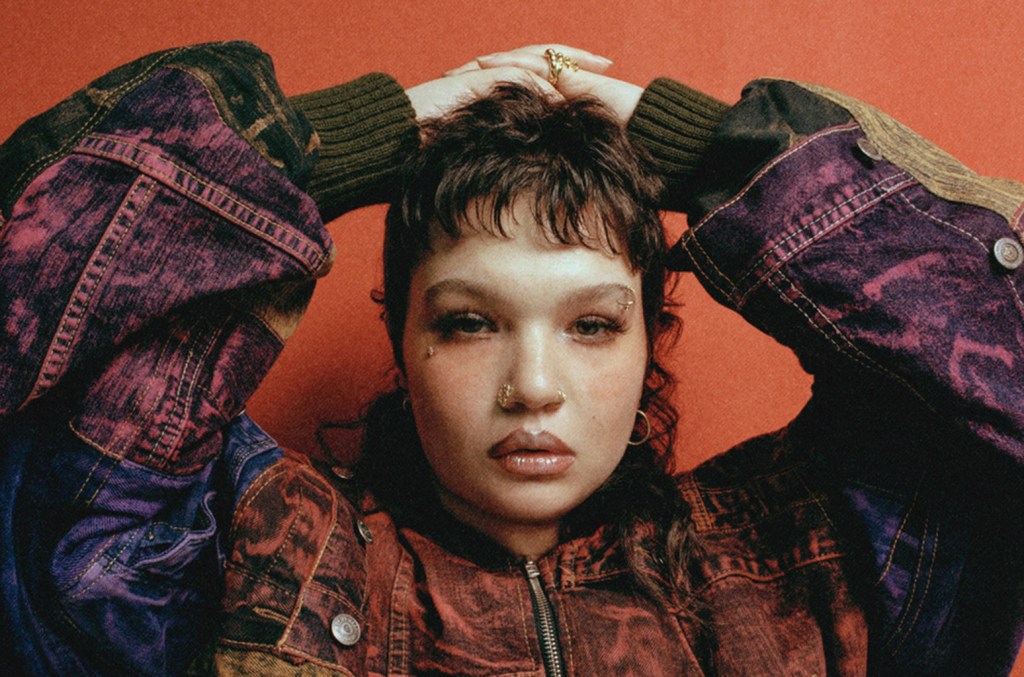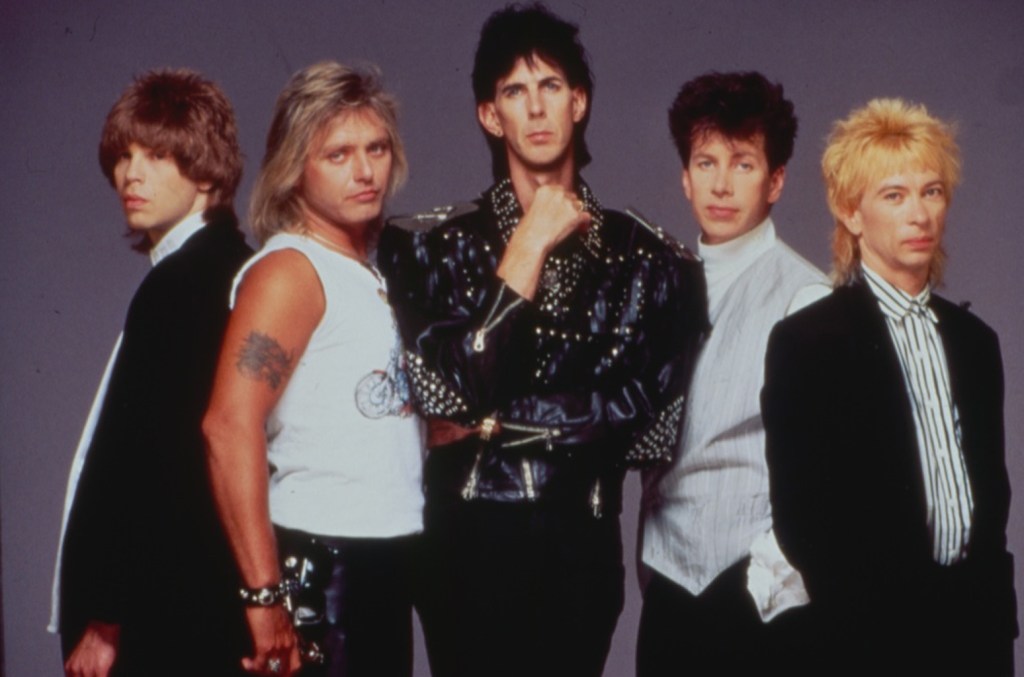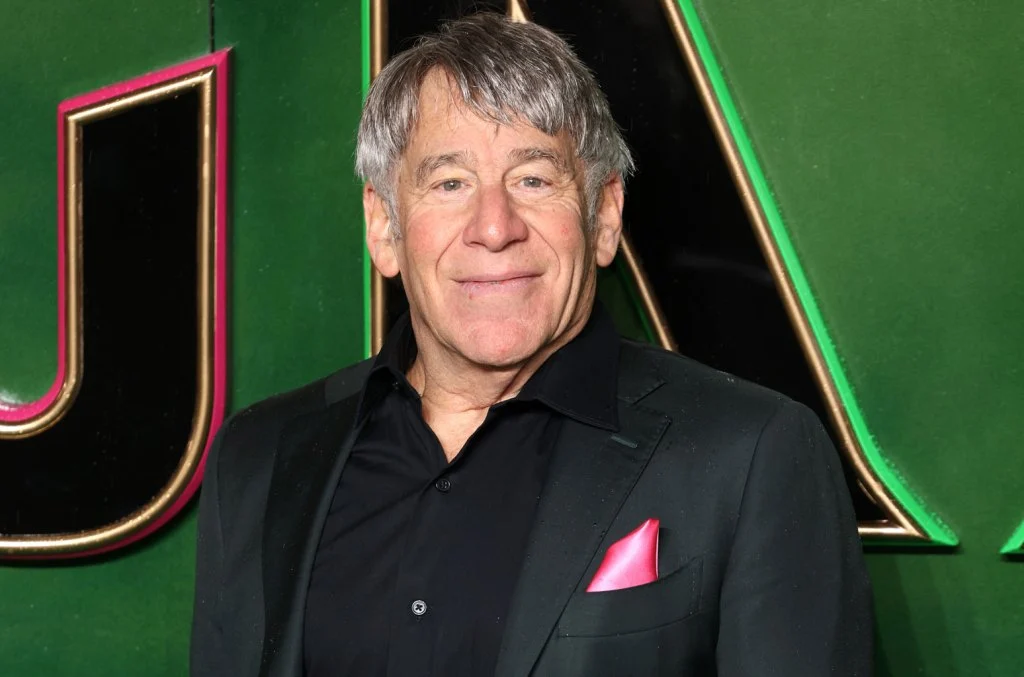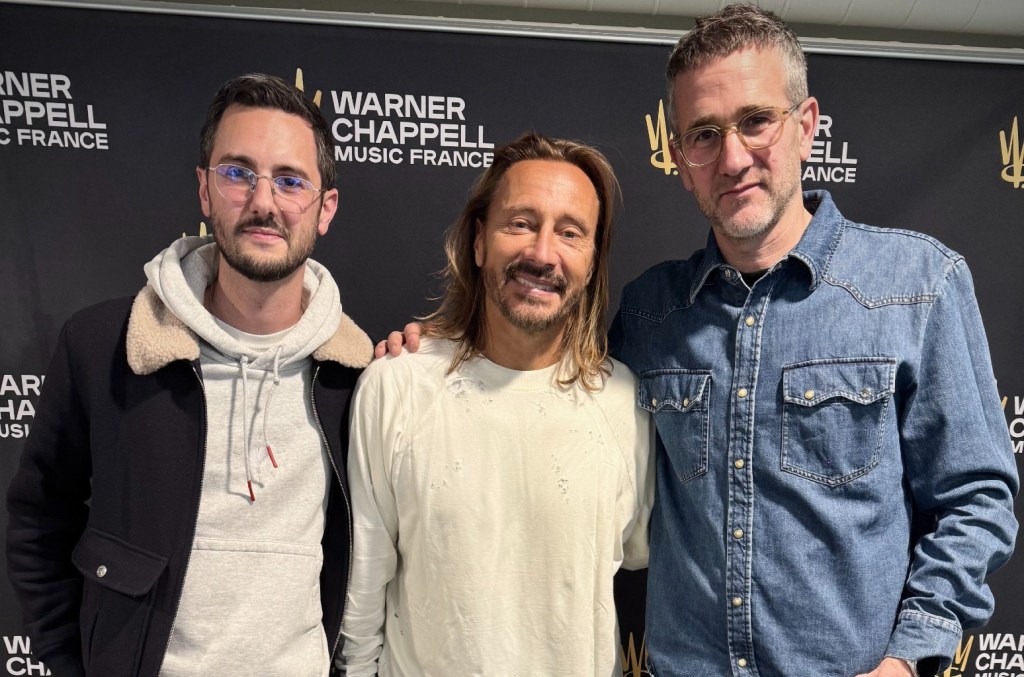Publishing
Page: 3
Gracie Abrams, Thomas Rhett, Aaron Dessner and Leon Bridges are performing at this year’s National Music Publishers’ Association annual meeting on Wednesday (June 11) at Lincoln Center’s Alice Tully Hall. The event, which acts as a state-of-the-union for music publishers, has continued to integrate more songwriters into the event in recent years to honor the talents that publishers serve every day.
Abrams and Dessner are part of a special segment of the meeting, dedicated to the Billboard Songwriters Awards, a collaboration between Billboard and the NMPA which was rescheduled from GRAMMY week due to the Los Angeles wildfires. Abrams is set to receive the Breakthrough Songwriter Award to account for her fast-growing career as an artist, and Dessner will be given Billboard‘s Triple Threat Award for his success as a songwriter, producer and musician. Though to pop fans Dessner might be best known for his work producing and writing with Taylor Swift, Bon Iver, Ed Sheeran and Abrams, he is also lauded in the indie rock space as a longtime member of the band The National. Both are set to perform.
Additionally, the NMPA is giving out awards of its own. It’s Non-Performing Songwriter Award this year is going to Rhett Akins, and as part of that honor, his son, Thomas Rhett, will perform a medley of his father’s vast country catalog, which includes songs like “Dirt On My Boots” by Jon Pardi, “Honeybee” by Blake Shelton, “I Don’t Want This Night To End” by Luke Bryan, “Small Town Boy” by Dustin Lynch, “Look What God Gave Her” by Rhett, and many more.
Trending on Billboard
The NMPA’s Songwriter Icon this year is Kacey Musgraves, and Bridges is flying in to pay tribute to Musgraves by performing a rendition of two of her songs.
The NMPA Annual Meeting, which is attended by a who’s who of the music publishing business, will also feature a keynote conversation with Oliver Schusser from Apple Music, and an address from the organization’s CEO/president David Israelite this year. Typically, Israelite’s speech includes a major announcement about new action the NMPA is taking to protect publishers and their writers. Last year, Israelite took on Spotify for cutting payments to publishers by about 40% that year through a multi-faceted attack plan, which is still on-going. He has also used the stage to announce lawsuits against Roblox, Twitter and more for using publishers’ copyrights without a license in previous years.
In 2024, the NMPA gave the Songwriter Icon award to Lana Del Rey and the Non-Performing Songwriter Icon award to Savan Kotecha, who has written hits like “Azizam” by Ed Sheeran, “God Is A Woman,” “Break Free” and “Break Up With Your Girlfriend, I’m Bored” by Ariana Grande, “I Can’t Feel My Face” by The Weeknd, “What Makes You Beautiful” by One Direction and more.
Lola Young and Simply Red’s Mick Hucknall will collect prestigious awards from ASCAP at a ceremony in London next Tuesday (June 17).
The “Messy” hitmaker will be awarded the Vanguard Award which recognises an artist whose “innovative work is helping to shape the future of music,” and follows Young’s success at the Ivor Novello Awards in May in the Rising Star Category.
First released in May 2024, “Messy” enjoyed a month-long stay at No. 1 on the U.K.’s Official Singles Chart earlier this year, and peaked at No. 14 on the Billboard Hot 100. The song also topped the Pop Airplay and the Rock & Alternative Airplay charts. Later this month, Young will perform at Glastonbury Festival.
Simply Red’s Hucknall will also be celebrated at the ASCAP London Music Awards with the Golden Note Award which recognizes his songwriting catalog over the past 40 years as the lead singer and songwriter in Simply Red as well as in his solo career.
Trending on Billboard
The group released their debut LP, Picture Book, in 1985 and the band boasts five U.K. No. 1 LPs, and two of their songs – “Holding Back the Years” (1986) and “If You Don’t Know Me by Now” (1989) – hit No. 1 on the Billboard Hot 100. In 2025, Simply Red embarked on a 40th anniversary tour through the U.K., Europe and South America.
”Mick Hucknall has made an indelible mark on a generation with his impassioned vocals and classic songwriting,” said songwriting great and ASCAP chairman of the board and president Paul Williams. “His singular mix of soul, funk and pop sounds made him a master of blue-eyed soul. We are thrilled to present him with the ASCAP Golden Note Award.”
The Golden Note Award has not been handed out since 2016 when Duran Duran were chosen for the prize. Other previous recipients include George Michael, Elton John, Blondie, Usher, Lionel Richie, Jay-Z and Stevie Wonder.
ASCAP will celebrate both Young and Hucknall at a private event in London on June 17, with U.K. songwriters honored in categories such as song of the year, top streaming song, top hot dance/ electronic song and more.

Sony Music Publishing has acquired Hipgnosis Songs Group, multiple sources confirmed to Billboard. Emails obtained by Billboard under the subject line “Update from Sony Music Publishing” said that the company “has entered into an agreement with Recognition Music Group (‘RMG’) to acquire its subsidiary Hipgnosis Songs Group (‘HSG’), effective immediately.”
Hipgnosis Songs Group is one of the companies considered to be under the umbrella of Recognition Music, formerly known as Hipgnosis — which also included Hipgnosis Songs Fund and Hipgnosis Song Management — and is the subsidiary that has housed Big Deal Music and its administration business since the company acquired Big Deal in 2020.
The HSG catalog includes the 4,400 copyrights originally from Big Deal, including songs recorded by Shawn Mendes, Panic! At the Disco and One Direction. According to HSG’s Instagram page, their repertoire also includes publishing shares of songs like “Taste,” “Espresso” and “Feather” by Sabrina Carpenter; “Ordinary” by Alex Warren; “Lose Control” by Teddy Swims; and many more current hits.
Trending on Billboard
“With this agreement, Sony Music Publishing now owns and administers the Hipgnosis Songs Group catalog, serving as the full-service publisher for its clients and roster of songwriters globally,” the email to HSG songwriters, composers and clients reads.
The news of this deal arrives just three months after Hipgnosis rebranded under the new name Recognition Music Group, bringing the bundle of related Hipgnosis titles under one name and one roof. As part of that previous news, it was noted that Hipgnosis Songs Group was still under the ownership of Blackstone and that the company said the division was under strategic review. Billboard reported that Recognition was looking to partner with publishers and music companies for the administration of their assets.
Over the years, Hipgnosis has largely driven the movement to treat music as an attractive asset class for Wall Street investors, bidding sky-high prices for catalogs by Red Hot Chili Peppers, Neil Young, Lindsey Buckingham, Blondie, Justin Bieber and Journey, among others. But Hipgnosis Songs Fund, which was publicly traded on the London Stock Exchange since 2018, has had a rocky last few years. By 2023, HSF ultimately left its investors frustrated as its stock price fell and its dividend was cancelled. Eventually, in July 2024, HSF was sold to private equity giant Blackstone for $1.6 billion.
A rep for Recognition Music declined to comment. Reps for Sony Music Publishing did not immediately respond to Billboard’s requests for comment at press time.
The email notes that “over the next few months, we will be transitioning the company to SMP’s services and systems. We are working closely with HSG to ensure that all clients will receive the high level of service that you have come to expect.”
By acquiring hits owned or administered by HSG, Sony Music Publishing — which often ranks as the largest publisher by market share on the Hot 100 and Pop Radio Airplay charts on Billboard’s Publishers Quarterly — has become an even more dominant player in popular music.
Read an excerpt of the email below:
Dear Hipgnosis Songs Group Songwriters, Composers and Clients:
On behalf of Sony Music Publishing (“SMP”), we are pleased to inform you that Sony Music Publishing has entered into an agreement with Recognition Music Group (“RMG”) to acquire its subsidiary Hipgnosis Songs Group (“HSG”), effective immediately.
With this agreement, Sony Music Publishing now owns and administers the Hipgnosis Songs Group catalog, serving as the full-service publisher for its clients and roster of songwriters globally.
With a unique roster of contemporary songwriters and timeless classics, HSG aligns with SMP’s mission to elevate and support the work of the world’s most impactful songwriters, and we are honored to represent you and your songs.
Over the next few months, we will be transitioning the company to SMP’s services and systems. We are working closely with HSG to ensure that all clients will receive the high level of service that you have come to expect. No further action is required from you at this time.
In the meantime, your current HSG team remains available to address questions or creative inquiries. You can also reach HSG at HSGcreativeteam@hipgnosissongs.com. For the time being, your royalty payments will continue to be processed and distributed through HSG’s system and your current account access remains unchanged. We will reach out to you directly with important transition updates as they come.
Thank you. We look forward to working with you in this next chapter.
Sincerely,
The Sony Music Publishing Team
Primary Wave has partnered with The Cars to acquire the rockers’ artist royalties, the company announced today (June 4). The deal, which encompasses classic rock staples such as “Just What I Needed,” “My Best Friend’s Girl” and the Billboard Hot 100 top five hits “Shake It Up” (No. 4) and “Drive” (No. 3), follows Primary […]
PRS For Music paid out £1.02 billion ($1.3 billion) in royalties to songwriters, composers and publishers in 2024, according to reports from the U.K. collection society.
That figure is up 8.1% from 2023, when royalty payouts to its members reached £943.6 million ($1.2 billion). This means that PRS For Music have delivered early on their five-year plan to achieve £1 billion in royalties paid out by 2026.
Last year, reported revenue growth was up 6.1% to £1.15 billion ($1.46 billion), marking a notable deceleration from the 12.5% increase recorded in 2023, when PRS For Music broke the billion-pound barrier for the first time.
Trending on Billboard
Elsewhere, international revenues at the end of 2024 jumped 79.6% from 2015 levels to £351.4 million ($448.8 million). The organization attributed the continued growth to “a renewed commercial mindset and investment in data and technology infrastructure.”
The society’s online royalties grew 9% in 2024 to £401.2 million ($512 million). Collections from the video games sector accounted for a significant portion of this increase, after PRS For Music secured a partnership with Sony Playstation’s streaming service to build on its long-standing download deal.
Public performance royalty collections were also a key driver of growth, increasing by 14% in 2024 primarily due to a lift in collections from the live sector, which were up 30% year-on-year.
In a statement, PRS For Music’s CEO Andrea Czapary Martin — who features in the inaugural Billboard U.K. Power Players list — said, “PRS members have the right to demand their society think differently, challenge the norms in an industry where tradition is too often an excuse for inaction. To constantly evolve to meet their changing needs and expectations.
“Indeed, it is because we recognize the need to constantly challenge ourselves that we have been able to double the royalties paid to songwriters, composers and publishers in less than a decade.”
The above figures were announced at PRS For Music’s annual general meeting, which took place in London on Tuesday (June 3) and was also where new council representatives were elected. Singer-songwriter Cathy Dennis has joined the Writer Council as a member alongside Tom Gray, chair of the Ivors Academy, and composer Philip Pope.
PRS for Music’s Publisher Council increased its membership, welcoming including Megan Hall, senior vp of business and legal affairs at Concord Music Publishing; Nigel Gilroy, global head of legal & business affairs at Novello and Company; Daniel Lang, senior vp of global society relations & digital rights at Warner Chappell Music; and Richard Paine, director of commercial rights & business affairs at Faber Music.
Julian Nott, chair of the PRS Members’ Council, said, “I’m delighted to welcome our new and re-elected Council members. The wealth of knowledge, experience and expertise that they have amassed during their careers will bring a huge amount of insight and ensure the Council continues to deliver the best possible society for members and that every part of the membership is served by the organization.”
ICMP, the global music publishing organization representing 90% of the world’s commercially released music, has released its first-ever report on global music revenue, documenting the earnings of 16 of the top music markets.
In total, ICMP found that these select markets — United States, the United Kingdom, France, Japan, Germany, Australia, Italy, Spain, Sweden, Canada, South Korea, the Netherlands, Brazil, Mexico, Hong Kong and South Africa — were worth more than $11 billion alone. Because some markets have slightly different accounting periods, the revenue in the report stems from the markets’ last 12 months of completed financial data. Largely, that data is from 2023.
The report helps publishers and songwriters make sense of what trends are building in this sector of the music business and how music lovers across markets are consuming music differently.
Trending on Billboard
Overall, digital revenue makes up 47.1% of the $11 billion plus in total revenue earned by the 16 markets, while 20.2% of revenue came from synchronization (songs placed in films, TV shows, commercials and video games); 21.5% stemmed from non-digital performance (songs played in restaurants, stores and other public venues); 5.9% came from non-digital mechanicals (songs sold as digital downloads, CDs, vinyl records, cassettes and more); and 4.6% was described as “other.”
In total, 40.9% of overall global publishing revenue was collected directly by publishers, and 59.1% was collected by performing rights organizations (PROs) and other collective management organizations (CMOs), which act as middlemen between licensees and publishers.
Below is a breakdown of Billboard’s top takeaways from the report.
Digital Revenue Dominance Varies Widely Across Markets
Latin music lovers are some of the world’s biggest digital music consumers, according to the report. Mexico’s music publishing sector earns a whopping 70.5% of its revenue from digital sources like streaming services. This makes sense, considering the Recording Industry Association of America (RIAA) reported in April that streaming equates to 98% of total revenue for Latin music in the U.S. on the master recording side.
When it comes to the three East Asian markets considered in ICMP’s report, their digital music consumption was strong but varied fairly significantly, proving music listeners in those markets are far from a monolith. Hong Kong’s revenue was 60% digital, whereas Japan came in at 49.7% digital and South Korea was 47.5% digital.
While Hong Kong is an outlier among East Asian countries, this does not mean that it correlated more closely with its former colonizer, the United Kingdom. In the U.K., digital represented just 41.5% of all publishing revenue.
In the European Union, digital consumption was generally much lower. Italy had just 20.3% of revenue come in from digital sources, while the number was 23.8% in France, 34.6% in the Netherlands, and 35% in Spain, which came in at the high end for the continent but was still relatively low, from a global perspective.
Synch Revenue Correlates to Strong Film/TV Markets
Given their robust film/TV businesses, it should come as no surprise that the U.S. and France had the strongest shares of synchronization in their total publishing revenue pie. The U.S. came in with 23.5% synchronization revenue and France had 18.6%.
Brazil (18.3%), Italy (17.9%), the U.K. (17.7%), Hong Kong (17.3%) and Australia (16.2%) also have strong revenues from synchronization uses. In general, countries that speak English, apart from South Africa, tended to report strong synch revenue shares, possibly due to the ubiquity of globally-distributed originally-English-language TV and film programming.
Countries like South Africa (9.7%), Mexico (9.5%), the Netherlands (9.2%) and Germany (8.8%) had much weaker synch markets, each owing just single-digit shares of their revenue in 2024 to synchs.
The Importance of CMOs Differs Across the World
For every country included in the report, more than half of their revenue was not directly sent to music publishers but through an intermediary CMO. Still, ICMP found that this percentage differed substantially from market to market.
Japan takes in the vast majority of its publishing revenue (84%) through intermediary CMOs — as do countries like South Korea (82.8%) and Brazil (77.2%).
The U.S. music publishers collect the most direct money of all the countries included in the report, with 40.9% going directly to publishers and the remaining 59.1% going through a CMO (like ASCAP, BMI, SESAC, GMR or the MLC). This lower number passing through CMOs might account for CMO regulations unique to the U.S. market. For example, ASCAP and BMI, which collect U.S. performance monies, have not been allowed to collect royalties from movie theaters when songs are played publicly (the “cinema royalty”), even though most other countries do.
To read through the full report, visit ICMP’s website.
In a perfect world, major career honors would be nicely spaced out. But sometimes, they bunch up. Case in point: On June 10, just two days before he receives the Johnny Mercer Award at the annual Songwriters Hall of Fame (SHOF) gala, legendary Broadway composer Stephen Schwartz will receive the ASCAP Foundation Champion Award, recognizing his humanitarian efforts and contributions.
There will also be a second honoree at the ASCAP Foundation event: artist and music education advocate Chandrika Tandon, who won her first Grammy in February for best new age, ambient, or chant album for Triveni.
Trending on Billboard
While the close proximity of the two events may be less than ideal, the ASCAP Foundation event appears to be a very different kind of evening — namely, smaller and more intimate. Where the SHOF dinner and gala will be held at the Marriott Marquis Hotel, the ASCAP Foundation “cocktail celebration” will take place at the New York home of Tony-winning composer Adam Guettel (Floyd Collins, The Light in the Piazza, To Kill a Mockingbird, Days of Wine and Roses).
Composers and lyricists (and EGOT recipients) Benj Pasek and Justin Paul (Dear Evan Hansen, La La Land) will perform a tribute to Schwartz. Composer, pianist and singer-songwriter Emily Bear (Moana 2, The Unofficial Bridgerton Musical) will perform and talk about her creative journey and The ASCAP Foundation.
The ASCAP Foundation Champion Award recognizes ASCAP members who have made a significant impact through social action and humanitarian efforts. Previous recipients include Billy Joel, Natalie Merchant, Judy Collins, Arlo Guthrie and Ne-Yo.
Founded in 1975, The ASCAP Foundation has supported American music creators through music education, talent development and humanitarian programs for five decades.
ASCAP Foundation president Paul Williams said in a statement, “As we celebrate 50 years of The ASCAP Foundation’s work empowering music creators and uplifting communities, it is an honor to recognize Stephen and Chandrika — two extraordinary individuals whose artistry and humanitarianism have inspired countless creatives. Their passion reflects the very spirit of our mission, and we are proud to honor them as Champions.”
Williams is on the board of directors of the SHOF and is a past recipient of the Johnny Mercer Award. (The ASCAP Foundation news announcement doesn’t mention Schwartz’s SHOF honor.)
These aren’t Schwartz’s only awards this year. In February, he received the Icon Award at the 15th Guild of Music Supervisors Awards in Los Angeles, where he was honored alongside veteran music supervisor Bonnie Greenberg.
Tickets to the ASCAP Foundation’s 50th Anniversary Gala run $2,000 and can be purchased here.
This week’s roundup of Publishing Briefs includes a rebrand for Sheer Publishing Africa, a pair of big deals for Warner Chappell Music and a renewal of Sony Music Publishing Nashville’s pact with Kane Brown’s creative company.
Warner Chappell Music signed a global administration and sub-publishing deal with veteran French DJ and producer Bob Sinclar, covering over 350 works from his catalog, including iconic tracks like “World Hold On,” “Love Generation,” and “The Beat Goes On.” The agreement also includes music from the influential Africanism label. Known for pioneering the French House (or French Touch) movement since 1998, Sinclar has built a successful mainstream and underground career through his label Yellow Productions, and over the years has collaborated with global stars such as Kylie Minogue, Sean Paul and Robbie Williams, and remixed tracks by Madonna, Rihanna, and Moby. “Bob Sinclar is a fervent representative of the French Touch, a true tastemaker who has always made a point of crossing borders,” said Valentin Zucca, senior A&R at WCM France. “His music, and what he did for the dance culture, had a major influence on a whole generation of listeners and artists.”
WCM also extended its joint venture with Lilly Raye Music, the publishing and management company led by Edward Matthew and Justin Martinez. Since its 2020 launch and 2023 expansion, the partnership has driven international collaborations across Asia, Europe and the United States. The venture is ramping up efforts in Germany and the Netherlands, particularly in dance and electronic music, while strengthening A&R in the UK. Achievements include Grammy recognition for work on albums by Summer Walker and Janelle Monáe, ten No. 1 hits in Sweden, and syncs with Apple and Acne Studios. They’ve also contributed to K-pop hits for LESSERAFIM and IVE, and support rising stars like Ayra Starr and RAYE. “We’ve built a really solid relationship with Edward and Justin over the past few years,” mentioned Guy Moot, co-chair and CEO of WCM. “They have an infectious enthusiasm for forging cultural connections between writers and producers from different parts of the world. The amazing results speak for themselves.”
Trending on Billboard
Sheer Publishing Africa officially rebranded as Downtown Music Publishing Africa (DMP Africa), marking a major milestone in its nearly 30-year history as a leading inie music publisher on the continent. Effective May 27, the rebrand aligns the company with Downtown Music Publishing’s global infrastructure, offering African creators enhanced access to royalty administration, tech and global services across 145 countries. DMP Africa will also introduce Neighbouring Rights Administration and Downtown’s royalty system to improve transparency and earnings access. With partnerships including Warner Chappell, Concord, and Saregama, DMP Africa is positioning itself as a global rights management leader. “This is a transformational moment,” said Managing Director Thando Makhunga. Downtown executives Emily Stephenson and Pieter van Rijn emphasized the strategic importance of Africa as a dynamic creative hub, with the latter calling it “a region rich in creativity, culture and talent.” Stephenson added that “through DMP Africa, we are investing not just in infrastructure, but in long-term relationships that will shape the future of the music industry.”
Sony Music Publishing Nashville renewed its partnership with Verse 2 Music, the joint venture founded in 2021 by Kane Brown and Kent Earls. V2 has quickly become a rising force in country music, representing top songwriters like Josh Hoge, Rivers Rutherford, and Dylan Schneider. Over four years, the venture has delivered more than 200 major label releases, 11 country airplay singles, and four No. 1 hits — including the award-winning “Thank God” by Kane and Katelyn Brown. Brown and Earls said they were “excited” and “thrilled” to renew the deal. SMPN chief Rusty Gaston added, “Kent and Kane are a creative and business dynamic duo. Just within a few years, they’ve gone from zero songs to celebrating four No. 1 singles, with multiple singles on the chart currently. Their success is just getting started, and we are so excited to continue this journey with them.”
PUB BRIEFS BRIEFS: Nick Autry inked a global publishing deal with Spirit Music Nashville. A former touring drummer, he’s now a Grammy-nominated engineer and producer who has worked with Carrie Underwood and Sam Hunt, and co-produced a chart-topping comedy album for Bobby Bones and The Raging Idiots … Sheltered Music formed a creative partnership with Crystal Pony Publishing and songwriter Roger Springer (“It’s a Little Too Late”). Their first signee is artist-writer Will Banister … Big Machine Music signed South African artist-writer Will Linley to an exclusive co-publishing deal. Known for viral hit “Last Call,” Linley’s catalog includes “Miss Me (When You’re Gone)” and EPs Kill All My Feelings and Magic. His new single “Cinematic” dropped May 16, launching a European pop-up tour.
Sony Music Publishing signed electronic artist and remixer Purple Disco Machine (Tino Piontek) to an exclusive worldwide songwriting deal. This joint venture between SMP’s German and UK offices aims to expand PDM’s international creative reach. Since his 2012 breakthrough “My House,” Purple Disco Machine has earned 37 platinum and 14 gold certifications, with over 1.5 billion streams. His hits “Hypnotized” and “In The Dark” with Sophie and the Giants, from the Exotica album, have surpassed a billion streams. His latest album Paradise features the hit “Substitution” with Kungs and Julian Perretta, and the 2024 chart-topper “Honey Boy” with Nile Rodgers, Benjamin Ingrosso and Shenseea. He’s also known for crafting remixes for The Rolling Stones, Dua Lipa, Lady Gaga and Lizzo. “I began working with Tino a decade ago, just after his ‘Street Life’ releases, when he was flipping samples, making club bangers and experimenting with his sound,” said SMPUK director of A&R Adrienne Bookbinder. “It’s been a pleasure witnessing Tino’s defining moments to-date, and it’s an honor to continue the story together alongside his manager Matt Jagger as we welcome him to SMP.”
Former Mojo Music executive Alan Wallis has launched Dynamite Songs, a new publishing venture that boasts rights to songs performed by Ed Sheeran, Kendrick Lamar and Papa Roach, it was announced on Wednesday (May 28).
Described as a “specialist music publisher,” Dynamite Songs has acquired around 50 catalogs to date, including those of Ed Sheeran and Paolo Nutini songwriter Chris Leonard; Sly Jordan, whose songs have been performed by Lamar and Sean Kingston; Jim Sullivan of the English electronic music duo The Wideboys; Dan + Shay songwriter Danny Orton; and Papa Roach’s Anthony Esperance and Bruce Elliott-Smith.
With backing from Crestline Investors Inc., a Fort Worth, Texas-based investment manager with $16 billion in alternative credit assets under management that previously invested in Mojo, Wallis says Dynamite will focus on rights to enduring catalogs that are considered “smaller sized deals.”
Trending on Billboard
“The smaller end of the music rights market has been under-appreciated for too long,” said Wallis, who previously led the music transactions practice valuing catalogs at Ernst & Young LLP and will serve as Dynamic Songs’ CEO.
“Our experience with Mojo Music has shown that there are brilliant songwriters and catalogues to be found — you just need to know where to look. With one of the best teams and networks in the business behind us, we’re strongly placed to navigate this market segment, allowing us to support songwriters and honour their works and legacies,” Wallis said in a statement.
Started in 2018 by Wallis and two former Spirit Music Group principals, Mark Fried and Peter Shane, Mojo Music & Media grew to include some 40 catalogs and 30,000 songs before it was acquired by Concord in 2023 for an undisclosed amount. Mojo’s portfolio included portions of songs recorded by REO Speedwagon, KISS, Cheap Trick, Duran Duran and Earth Wind & Fire.
Wallis’s team includes former Mojo Music & Media executives Sophie Brown, who will serve as CFO/COO; Lisa Macy, who will serve as head of sync; and Tom Donovan, Dynamite’s head of business development. Dynamite’s investment manager is Naomi Riley, whil Peter Thomas, previously MD of Carlin Music, serves as chief catalogue officer.
K Music has signed a worldwide admin deal with Kobalt, the company announced on Wednesday (May 28). The agreement was done via the indie label’s K Music Publishing; Kobalt will administer future output and select tracks in the company’s repertoire.
The strategic partnership with Kobalt aims to provide K Music Publishing with the global reach and resources to “further elevate its artists, expand their presence worldwide, and drive continued success in the evolving music industry,” according to a press release. Founded in 2019 by Alfredo Becerra, Leonardo Soto and Carlos Santos, K Music is home to música mexicana star Luis R Conriquez.
“Freddy, Leo, and their team have built in K Music a modern music company infused with a passionate entrepreneurial spirit embodied by the music of its artists,” Nestor Casonu, president of Latin America for Kobalt, said in a statement. “We are thrilled to welcome K Music Publishing into the Kobalt global family.”
Trending on Billboard
“We are excited to join the Kobalt Family,” added Alfredo Becerra, CEO of K Music. “This partnership is a significant milestone for K Music and K Music Publishing. We look forward to the incredible possibilities that lie ahead. This deal is not just about securing the intellectual property of our songwriters but about offering new pathways to the talented creators we represent, helping them break through new markets, and achieving even greater success.”
The deal includes Conriquez’s runway hit “Si No Quieres No” with Netón Vega, which scored the Sonora-born singer-songwriter his first Hot 100 entry. K Music — previously Kartel Music — also includes acts such as Joel De La P, Tony Aguirre, Dinamicos Jrs, Novillos De La Sierra and Said Norzagaray on its roster.
“Kobalt partners with companies that are reshaping the future of music,” said Tere Romo, Kobalt’s senior creative director for Latin America. “K Music has consistently demonstrated its ability to discover and develop groundbreaking talent in the música mexicana community. This partnership marks an exciting new phase for both of our companies and we’re thrilled to support K Music Publishing as they continue to push the boundaries of the genre and bring their incredible artists to a global audience.”
K Music Publishing was represented in the deal by Christopher Navarro, partner at Singh, Singh & Trauben LLP.

 State Champ Radio
State Champ Radio 









